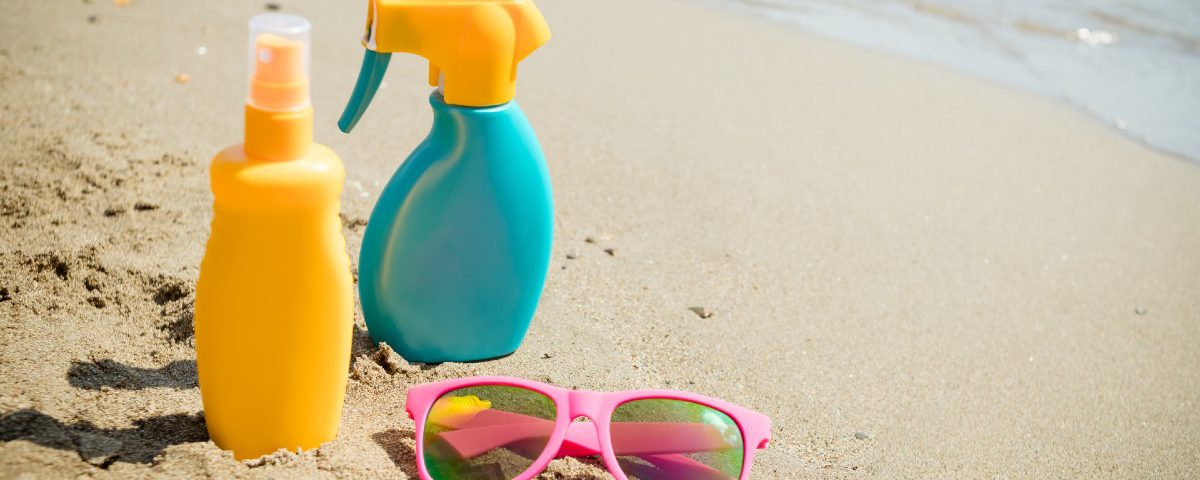The impact of our collective actions on the planet has raised urgent questions for beauty brands globally. Attention is turning toward marine life and coral reefs which are under threat from waste products, such as microbeads, triclosan, plastics and ingredients once thought to be safe, that are flooding the oceans and causing unprecedented damage.
Up until recently, an Australian’s view of “ocean safe” meant “swim between the flags and watch out for sharks”. Stacey Fraser, co-founder of New Zealand beauty consultancy, Nature’s Blueprint, comments: “Ocean safe is now an everyday thought and consideration in everything we do especially with our new consumer activist Gen Z consumer. Our oceans are in crisis and we need to act now.” Fraser is noting that ocean safe formulations are becoming another important factor to the product and brand brief and applies to all components that make up the beauty product from sourcing, ingredients, formulation, packaging, ethos, marketing messaging and supporting ocean clean causes such as Sustainable Coastlines, an NZ charity that enables people to look after the coastlines and waterways through clean-up events, educational programs, public awareness campaigns and riparian planting projects.
A ban on polluting cosmetic ingredients
Plastic microbeads have long been used as an exfoliant in rinse-off cosmetics but are being phased out in several countries including the US, Canada, France, the UK, Sweden and Taiwan. UK beauty industry organization, the CTPA, believes it is a step in the right direction for marine plastic litter, but on its website states that plastic microbeads from cosmetics account for less than 1% of plastic pollution in the marine environment. Microplastics, tiny solid plastic particles or fibers often start as larger pieces of plastic debris before breaking down over time. “Government and other industries will need to look to address the major sources of plastic pollution if we are to have a wider impact on this pressing environmental challenge,” the body states.
Triclosan is widely used in cosmetic products such as bodywash, soaps and hand sanitizers for its anti-bacterial and anti-fungal properties, but has been banned in several countries including restrictions under EU Cosmetic Regulations because of the toxic effect on environmental and human health.
Meanwhile, recent research suggests that mineral based natural sunscreen ingredients, such as zinc and titanium, are contributing the bleaching of coral. “The best alternative,” advises Fraser, “is to wear a full lycra body suit.”
Ocean safe claims spread out from sunscreen
According to Mintel, concerns about cosmetics that wash off when people swim in the sea has led to the emergence of “ocean safe” or “reef safe” claims. “Initially, we were seeing these claims in sunscreen, but are starting to see them appear in skincare, soap, bath products as well as haircare,” comments Andrew McDougall, associate director, beauty and personal care, Mintel. He cites the following examples from Mintel’s GNPD survey:
- Pacifica Coconut Pro Strong & Long Creamy Oil mask, a vegan hair treatment to protect hair color, that is free from petroleum, parabens, sulfates and phthalates and claims to be “coral reef-safe” on the pack.
- Alphanova Sun Medium Protection SPF15 sun milk has a sea-and reef-safe claim front and center on the pack, accompanied by an image.
- Australian company Trilogy has an ethical range formulated with rosehip seed powder, including Exfoliating Body Balm, which it touts as an “ocean-safe” alternative to microbeads.
Another area of concern is the impact of waste wipes that typically contain plastic, take a long time to break down and can cause havoc with marine life. “Natracare launched Safe to Flush Moist Tissues, made of compostable, plastic-free fibers, without wood pulp or residues that can contaminate the water,” states McDougall. Other ocean-friendly biodegradable wipes brands include The Cheeky Panda, Happy Planet and Rawganic. “There are even facial sheet masks using materials such as bamboo fiber and organic cotton,” he observes.
Cleaning up plastics from the oceans
Pressure is growing on beauty brands to move away from single use plastics, known to be another ocean pollutant, and replacing it with recyclable plastic, aluminum, glass and other new technology. Fraser highlights natural NZ brand Ecostore that is leading an initiative and launching a limited edition run of hand wash packaged in bottles made from 100 per cent ocean waste plastic collected from South East Asia, a first for New Zealand. Ecostore partnered with international global packaging manufacturer Pack Tech to source its ocean waste plastic, which has full traceability showing where its recovered plastic is sourced.
McDougall believes the growing eco-ethical demands on brands, from younger consumers in particular, now extends the “clean” term beyond simply being safe for those using the product, to ensuring products are safe for the environment. “Brands need to improve the current level of transparency on ingredients and production methods to meet the growing demand for safer, cleaner products,” he concludes.
Stacey Fraser and Mintel will take part in next year’s in-cosmetics Global Marketing Trends presentations in Barcelona, from March 31-April 2, 2020. https://www.in-cosmetics.com/global/
The Marketing Trends theatre is the most popular educational feature at the event. Priority Passes are available visitors to book and get a guaranteed seat in the sessions. To register and book a pass, visit in-cosmetics.com/register.

